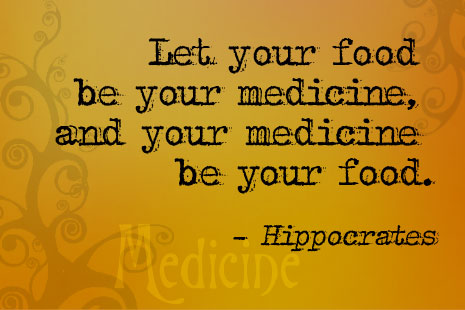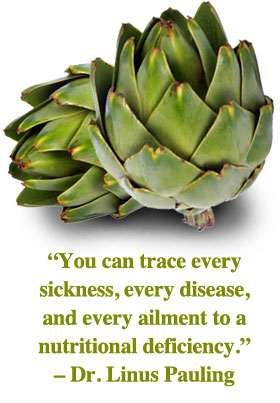The Naturopathic Way: What is an Illness?
by Christopher Vasey, retrieved from http://www.christophervasey.ch/EN/HOME.html, 11/24/11)
The importance of the body's internal cellular environment
It is rare for any person whose health has been compromised to ask himself “Why am I sick? What is really happening in my body?” To the contrary, all of his attention – and that of those around him – is focused on his blatant, disagreeable, or painful symptoms, which are actually just surface manifestations of his deep-rooted illness.
It seems self-evident that the normal reaction would be to make a vigorous counterattack to the assault represented by the illness. As a general rule we behave as if disease were an outside entity independent of the patient, which, by entering the body, suddenly makes the patient sick. From this perspective, we consider the individual stricken by illness to be an innocent victim requiring our assistance because, through bad luck, he or she suffered an unhealthy assault.
The expressions used to speak of illness clearly support this premise. We say the we “fall” ill, that we haven been “stricken”, or that we have “caught” a disease.
According to this hypothesis, taught by allopathic medicine, each “assailant” determines different characteristic disorders. There are, therefore, as many diseases as there are assailants; this is what is known as multiple causes, or plurality of disease. Since there are no common elements among diseases in this corollary, each must be treated with its own specific remedy.
In naturopathy, however, all diseases are considered as different manifestations of a single, common disorder. This common denominator, this profound illness from which all others result, resides on the level of the biological terrain, or internal cellular environment. This terrain consists of all the fluids in the body, including those contained within cells and those in which the cells are bathed, as well as blood, lymph, and cerebrospinal fluid.
The intra-and extracellular fluids, along with the blood, represent 70 percent of the body’s weight. These fluids are crucial, inasmuch as they constitute the environment of our cells. Intracellular fluid fills the cells, gives the body its shape and tone, and allows the exchanges that need to take place between its organs. Extracellular fluid carries oxygen and nutriments to the cells, and carries waste they expel to the excretory organs.
Our cells depend entirely on these fluids. They deliver nutritive supplies (food, vitamins, water, oxygen, and so on), eliminate toxins created by the metabolic process, and transmit messages from one cell to another, ensuring their coordinated and harmonious interaction.
Just as our environment provides conditions that are favourable for health or make us sick, depending on whether or not it is polluted, the environment of the cells plays an influential role in the state of their health. If they are bathing in a milieu that is deficient in oxygen and overloaded with wastes, they will be incapable of performing their tasks properly.
Our body is made up of cells. If these cells are not functioning normally, the entire body will function poorly and enter the state that we call illness.
There is a precise and ideal composition of the internal environment that permits proper functioning of the body. Any major quantitative or qualitative change in these fluids leads to illness. For this reason, the vital force of the body is constantly struggling to maintain the internal cellular environment in perfect balance.
Primarily the body does this by neutralizing and expelling all wastes and toxins that are a consequence of metabolism. This purification is carried out by the emunctory, or excretory organs – liver, intestines, kidneys, skin, lungs – which filter and eliminate waste.
The localization of “surface” disorders depends on the particular weaknesses of an individual’s body. All the body’s organs are immersed in fluids that are overloaded with wastes. They are all irritated and attacked similarly by toxic sludge. The first organs to give way, the first to find this environment intolerable, are obviously those that are genetically weakest or have the greatest demands placed on them. For example, for people whose profession requires them to talk a lot, it would be the throat; for those most often affected by stress, the nerves will give way; miners, painters and others who breathe in dust or noxious gases at their place of employment are likely to have problems with the respiratory tract. The illness is one and the same in all cases, but manifests differently in every individual.
We owe this concept of a single cause for every disease to Hippocrates, known as the father of medicine. In the time around 500 BCE he wrote: “The nature of all illness is the same. It differs only in its seat. I think it only reveals itself in such diversity because of the multiplicity of places where the illness is established. In fact, its essence is one, and the cause producing it is also one.”
Twenty-five centuries later, Alexis Carrel, the 1912 Nobel Prize winner for medicine, stated: “The body is ill in its entirety. No illness remains strictly confined to a single organ.”
Why do we fall ill?
The role played by toxins and deficiencies
When we understand how the state of the terrain becomes degraded, we also realize that it depends entirely on outside sustenance to build and renew itself. The nutritive substances contained in the foods we eat are used to manufacture cells and body fluids. Our bodies function thanks to them.
Toxins
If the intake supplied by one’s diet is greater than the body’s needs, the body accumulates substances it is unable to use. As the body is forced to store them, they collect in the tissues. This can include chemical or synthetic ingredients in food, such as coloring, preservatives, and so on. Since nature has never provided any instructions to the body for their use, these more or less toxic substances will collect in the tissues and alter the biological terrain in accordance with their specific characteristics.
Even when the diet – the body’s primary source for retaining or restoring health – is adequate, it is still possible for wastes to accumulate in the body. This occurs every time that worry, stress, fear, and so forth disturb the multitude of biochemical transformations that take place in the body – the body’s metabolism. Digestion functions poorly, so the food ingested engender a plethora of wastes, generally designates as toxins. This includes crystals, which, produced by the metabolising of proteins, are acidic in nature and can be hard and painful to excrete; and colloidal wastes, such as phlegm, which are produces by the metabolising of starches and fats and do not generally cause pain.
All of these substances, whether toxic or not, when present in excess amounts prevent the body from functioning properly and are considered to be the primary cause of the deterioration of the biological terrain, and therefore the source of disease.
Deficiencies
There is another major cause for degradation of the biological terrain, one brought about not by an excess of one or more substances in the body, but by a deficiency in a substance it requires to function properly.
A deficiency is a lack of essential nutriments that are indispensable for the body’s ability to rebuild itself and function. Such nutriments include proteins, carbohydrates, fats, minerals, minerals, vitamins, and trace elements. The composition of the body’s internal environment can be maintained only when there is sufficient intake of all the elements it requires. If one of these elements is not supplied in sufficient quantity, there is an immediate slowdown in physical function. When this element is entirely lacking from the diet, the body functions that are dependent on it can no longer be assured. If this state of complete deficiency extends for a prolonged amount of time, death is a real possibility.
In our society of abundance, it might seem difficult to imagine falling ill due to dietary deficiencies, but the truth is it is very possible and even quite easy. The foods available today supply less and less of our body’s needs because they themselves are suffering deficiencies, due to modern farming and husbandry practices. The countless refining processes our food undergoes before reaching the grocery shelves exacerbates the problem.
How do we heal?
The wisdom of the body
Everyone has, at least once, recovered from a disease without taking any medicine, or products containing active ingredients for treating illness. And yet, when someone is sick, the main concern is always to produce medication. This need for a remedy at any cost has been engraved deeply into our brains, as it is commonly accepted that without medicine there is no recovery.
Medications are supposed to contain all the curative powers necessary to restore a sick body to health. And yet, how many patients have recovered their health without taking any medication, either because it was unavailable or because they simply did not want to take medication? And, how do animals cure themselves, since they do not have any medicines naturally available to them? Is there another option?
Natural medicine talks about a “medicalizing” nature or “vital force of the body”. This force cannot be identified with any one organ of the body; its existence is revealed only in the effects of its action. Hippocrates said, “The vital force of the body is the most powerful force of cohesion and action in existence. However, it is invisible to the eye; only reasoning can conceive of it.”
In the healthy state, the physical vital force orchestrates and harmonizes all physical functions of the body. It works constantly to maintain the body in the healthiest state possible.
Cleansing crisis
When confronted by a rising tide of overloads and congestion of the tissues, the vital force does not remain on the sidelines as a passive spectator. It reacts vigorously to restore order to the physical organism so that it can continue – or resume – its normal functioning. All its efforts aim at reestablishing the purity of the biological terrain by neutralizing the toxins found in this internal cellular environment, and expelling waste from the body by means of the various excretory organs. This eviction of toxins from the body often can take a spectacular form. Such events are called detoxification crisis, also known as cleansing crisis, or healing crisis, due to the abrupt intensity of their inception.
Elimination during these kinds of crisis will be made trough the same excretory organs as in condition of normal health, but with greater forcefulness. Colloidal waste will be expectorated trough the respiratory tracts, und urine will be laden with waste. The skin may eliminate waste trough heavy perspiration, pimples, or various forms of eczema. The digestive tract also plays a role by releasing diarrhea, or abundant secretions of bile.
Which excretory organs are pressed into service depends on the nature of the waste and the strength of a patient’s different organs, so there are significant variations from one individual to the next, and multiple possibilities for the localization of disorders. These local disorders are the visible manifestation of the vital force’s defensive reaction as it seeks to correct a much more profound ill: the congestion of the biological terrain.





